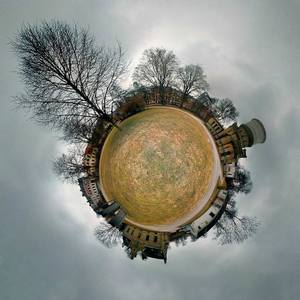United Matthew Clifton-Brown
The solution for a divided world is a united church. According to Ephesians, the church that Jesus builds isn’t just an extension of Jewish religion. Rather it is a community where anyone can belong and be equal as children of God through faith in Jesus.
In Ephesians 2:12-13, Paul talks about our state before Christ, not just as an individual but as a people group. As gentiles (non-Jews) we were at that time separated from Christ, alienated from the commonwealth of Israel and strangers to the covenants of promise, having no hope and without God in the world. As verse 13 says, we were far off.
John Stott helpfully comments, we were doubly alienated from God and from his people (the Jews). There were rich promises to His people from the time of Abraham, He did mighty miracles, provided food in the desert, broke down walls, protected them from their enemies, sent prophets and angels to them, and ultimately came to them personally in the flesh as a man. His promises were towards his people, they would have had good teaching from an early age, and knew that as long as they were faithful in honouring their God that he would remain with them. It was not that God had forgotten the gentiles, he made clear promises to Abraham in Genesis 28 that his plan had always been to bring salvation to them through his people, via Christ . But they didn’t know that, they were ignorant as nobody told them, no Jewish missionaries had ever gone to other nations.
Without Hope
Paul says that we were without hope, a) because we didn’t know about God’s ultimate plan to save us, b) because the way to salvation was for a gentile very difficult. We would need to be circumcised, live in the land of Israel, not eat certain foods, and keep laws and regulations like special Sabbath days. We were also separated by a dividing wall of hostility from God because of our sin, and from God’s people.
Christ changes everything
Christ’s death on the cross changed everything, however. (14) For He Himself is our peace, who has made us both one and has broken down in his flesh the dividing wall of hostility (15) by abolishing the law of commandments expressed in ordinances, that he might create in himself one new man in place of the two, so making peace, (16) and might reconcile us both to God in one body through the cross, thereby killing the hostility.
Through His death, He opened up a way for us to know Him, and be part of a whole new community. Paul talks of creating a new man, a new people, a new temple. Not just two old structures welded together, but a new community.
Matthew shared about a neighbour of his that used to take old cars that had been written off on a car accident, welding together the ‘good bits of each’ (an illegal practice!). God didn’t take two old structures (his people the Jews and the gentiles) and join them together. He created one new man in place of the two. This UNITING , means we belong to a whole new structure, and have totally new identities, new citizenship. We don’t keep looking back and reminding each other about where we came from, nor should we have superior attitudes. There mustn’t be first class and second class members of this body, or schisms that separate... "because we are fellow heirs, members of the same body, and partakers of the promise in Christ Jesus through the gospel." (Ephesians 3:6)
Questions:
Look at Galatians 2:11-21 in the light of this gospel teaching by Paul on one new man. Why was Paul so annoyed with Peter? What was Peter in effect doing?
Think about ways that we might fall into the same trap today in our church. Are there attitudes, that we ‘bring over’ from the old into the new?
How can we make sure that fractures don’t emerge, and we live fully in the good of all that Christ suffered to create this one new man, new community new temple?

